The Health bulletin [serial] - University of North Carolina at Chapel Hill
The Health bulletin [serial] - University of North Carolina at Chapel Hill
The Health bulletin [serial] - University of North Carolina at Chapel Hill
Create successful ePaper yourself
Turn your PDF publications into a flip-book with our unique Google optimized e-Paper software.
<strong>The</strong> <strong>Health</strong> Bulletin January, 1927<br />
the gre<strong>at</strong> majority <strong>of</strong> people who contract<br />
tuberculosis, eveu in l<strong>at</strong>er years,<br />
do so through exposure in childhood,<br />
and several years <strong>of</strong> undernourished<br />
physical condition in early childhood<br />
makes it more probable for th<strong>at</strong> disease<br />
to be contracted.<br />
<strong>The</strong> Tenant Fai-nier<br />
In the m<strong>at</strong>ter <strong>of</strong> undernourished children<br />
in migr<strong>at</strong>ory occup<strong>at</strong>ion, the tenant<br />
farmer here comes in for considerable<br />
<strong>at</strong>tention. <strong>The</strong> more humanitarian<br />
and enlightened land owners today are<br />
recognizing the fact th<strong>at</strong> a good garden,<br />
plenty <strong>of</strong> chickens, and a good family<br />
cow are just as essential to the making<br />
<strong>of</strong> a good cotton or tobacco crop as a<br />
time account <strong>at</strong> the supply store.<br />
Furthermore, all classes <strong>of</strong> land owners<br />
are beginning to realize th<strong>at</strong> such<br />
a provision and such a requirement is<br />
good business. <strong>The</strong> rapidly increasing<br />
industrial expansion in this St<strong>at</strong>e<br />
affords employment in mills and factories<br />
to an increasing number <strong>of</strong><br />
people. <strong>The</strong> gre<strong>at</strong>er number <strong>of</strong> such<br />
oper<strong>at</strong>ives are recruited from small<br />
towns and through the small towns<br />
from the country districts proper. In<br />
other words, the tenant farmer and<br />
his family is the ground log <strong>of</strong> mill<br />
labor in <strong>North</strong> <strong>Carolina</strong>. <strong>The</strong>refore it<br />
is important for the tenant farmer to<br />
be supplied with plenty <strong>of</strong> milk for his<br />
children, because, first, it contributes<br />
to their health and happiness and<br />
prosperity and so makes him increasingly<br />
content to stay on the farm and<br />
save money with which to purchase a<br />
farm <strong>of</strong> his own. It enables him to<br />
stay in an environment th<strong>at</strong> he loves<br />
and is s<strong>at</strong>isfied in, to send his children<br />
to the consolid<strong>at</strong>ed schools and therefore<br />
provide them with a good common<br />
and high school educ<strong>at</strong>ion. And for<br />
those who for various reasons find mill<br />
life more <strong>at</strong>tractive, the children th<strong>at</strong><br />
go into service in such mills when they<br />
grow up have better health, have a<br />
found<strong>at</strong>ion <strong>of</strong> good physique, and are<br />
thus able to make more money and<br />
to live better, and provide better facilities<br />
in turn for their own families when<br />
they set up homes <strong>of</strong> their own.<br />
We have <strong>at</strong> hand no st<strong>at</strong>istics to<br />
prove it, but the impression prevails<br />
th<strong>at</strong> the consumption <strong>of</strong> milk among<br />
tenant farmers and their families and<br />
factory workers is below the average<br />
<strong>of</strong> people in other avoc<strong>at</strong>ions. Such an<br />
impression is probably true because <strong>of</strong><br />
the fact th<strong>at</strong> it is hard for the tenant<br />
farmer who has no home or land <strong>of</strong><br />
his own and who moves from one farm<br />
to another almost every year, to find<br />
it possible to take care <strong>of</strong> a cow unless<br />
the landlord insists on it and makes<br />
some provision for the easy upkeep <strong>of</strong><br />
his cow. N<strong>at</strong>urally it is impossible for<br />
the average family th<strong>at</strong> works in a<br />
factory to keep a cow. In the first<br />
place, for most <strong>of</strong> them it would be an<br />
economic mistake, unless they live far<br />
beyond the mill villages where they<br />
would have room for the cow's upkeep.<br />
N<strong>at</strong>urally for such people a good<br />
quality <strong>of</strong> milk <strong>at</strong> a reasonable price<br />
is an important consider<strong>at</strong>ion. <strong>The</strong> providing<br />
<strong>of</strong> this commodity affords a<br />
market for an increasing number <strong>of</strong><br />
dairymen around the small mill towns<br />
as well as providing a necessary article<br />
<strong>of</strong> food to people who need it.<br />
A Safe Milk Supply<br />
One reason for the deficiency in milk<br />
consumption in this St<strong>at</strong>e probably<br />
d<strong>at</strong>es back to the days when typhoid<br />
fever existed on every block and nearly<br />
every farm in the summer time. When<br />
called to see such cases in the days<br />
before the whole-time health <strong>of</strong>ficers<br />
and organized health departments, the<br />
physician n<strong>at</strong>urally looked for the<br />
cause <strong>of</strong> the contagion and generally<br />
cha^-ged it up with considerable accuracy<br />
to the milk or w<strong>at</strong>er. This is<br />
because milk and w<strong>at</strong>er make admirable<br />
vehicles for the propag<strong>at</strong>ion and<br />
transmission <strong>of</strong> typhoid germs. Today<br />
under the expert supervision <strong>of</strong> dairy<br />
and food inspectors, the enforcement<br />
<strong>of</strong> milk ordinances, and the rigid care<br />
exercised in the provision <strong>of</strong> public<br />
w<strong>at</strong>er and food supplies affords a more<br />
and more safe milk and w<strong>at</strong>er supply<br />
than ever before in the history <strong>of</strong> the<br />
St<strong>at</strong>e. With the approved public w<strong>at</strong>er<br />
supply free from contamin<strong>at</strong>ion available<br />
for a third <strong>of</strong> the people <strong>of</strong> <strong>North</strong><br />
<strong>Carolina</strong>, and with seventy-five per<br />
cent <strong>of</strong> the cities and towns in the<br />
St<strong>at</strong>e purchasing milk protected by a<br />
standard milk ordinance promoted by<br />
the <strong>North</strong> <strong>Carolina</strong> St<strong>at</strong>e Board <strong>of</strong>


![The Health bulletin [serial] - University of North Carolina at Chapel Hill](https://img.yumpu.com/33495252/10/500x640/the-health-bulletin-serial-university-of-north-carolina-at-chapel-hill.jpg)
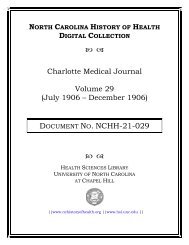
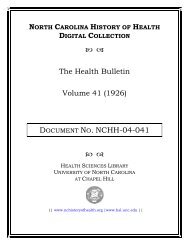
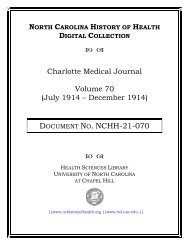
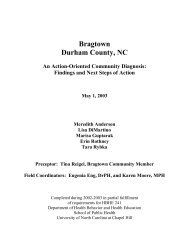
![Bulletin of the North Carolina Board of Health [serial] - University of ...](https://img.yumpu.com/48032016/1/153x260/bulletin-of-the-north-carolina-board-of-health-serial-university-of-.jpg?quality=85)
![The Health bulletin [serial] - University of North Carolina at Chapel Hill](https://img.yumpu.com/47603625/1/169x260/the-health-bulletin-serial-university-of-north-carolina-at-chapel-hill.jpg?quality=85)
![The Health bulletin [serial] - University of North Carolina at Chapel Hill](https://img.yumpu.com/47242858/1/169x260/the-health-bulletin-serial-university-of-north-carolina-at-chapel-hill.jpg?quality=85)
![The Health bulletin [serial] - University of North Carolina at Chapel Hill](https://img.yumpu.com/43204263/1/172x260/the-health-bulletin-serial-university-of-north-carolina-at-chapel-hill.jpg?quality=85)
![The Health bulletin [serial] - University of North Carolina at Chapel Hill](https://img.yumpu.com/41981074/1/163x260/the-health-bulletin-serial-university-of-north-carolina-at-chapel-hill.jpg?quality=85)
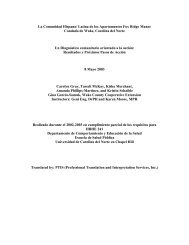
![The Health bulletin [serial] - University of North Carolina at Chapel Hill](https://img.yumpu.com/40912928/1/164x260/the-health-bulletin-serial-university-of-north-carolina-at-chapel-hill.jpg?quality=85)
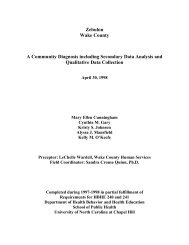
![The Health bulletin [serial] - University of North Carolina at Chapel Hill](https://img.yumpu.com/35643061/1/167x260/the-health-bulletin-serial-university-of-north-carolina-at-chapel-hill.jpg?quality=85)
![Biennial report of the North Carolina State Board of Health [serial]](https://img.yumpu.com/34024350/1/166x260/biennial-report-of-the-north-carolina-state-board-of-health-serial.jpg?quality=85)
